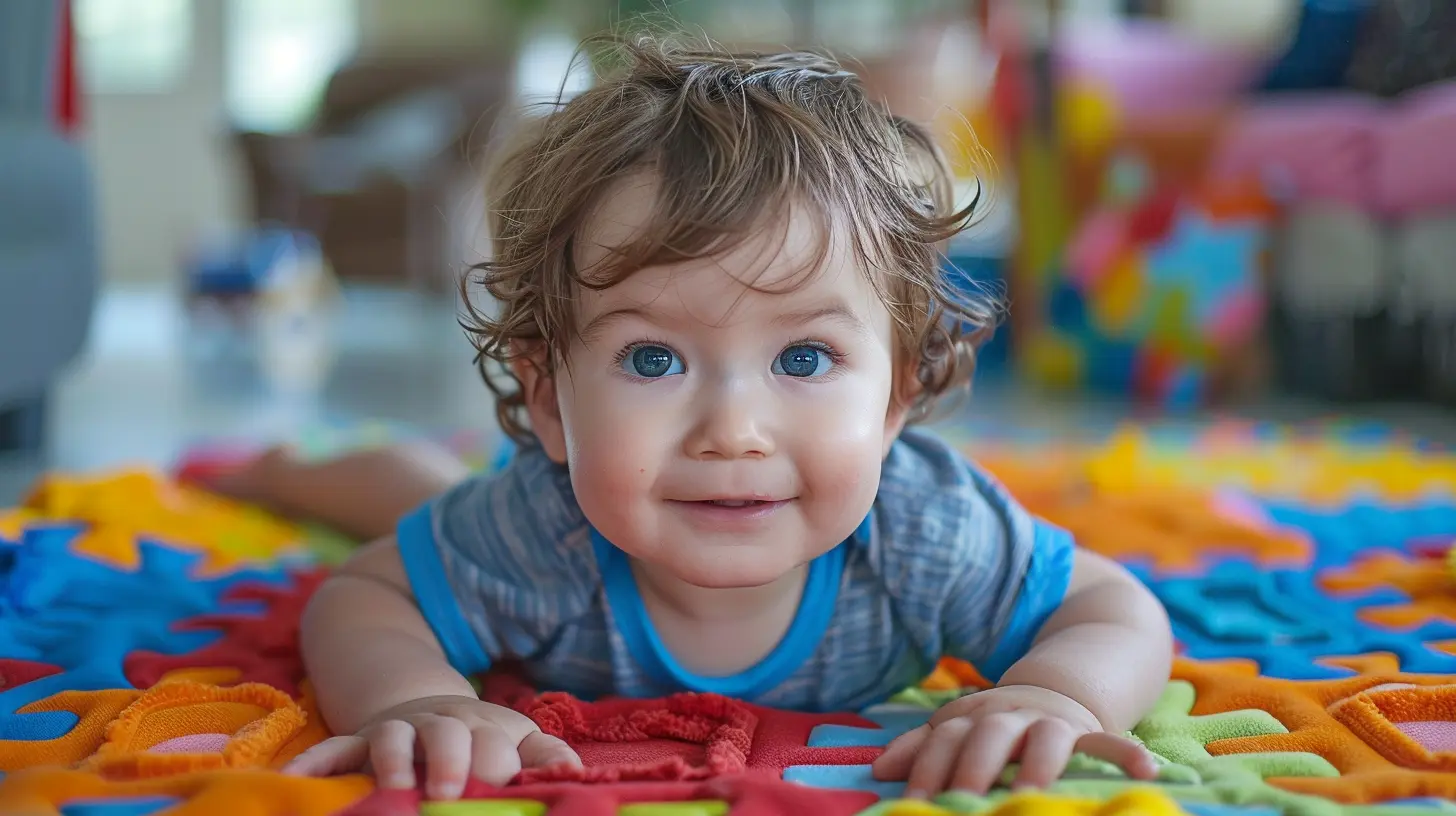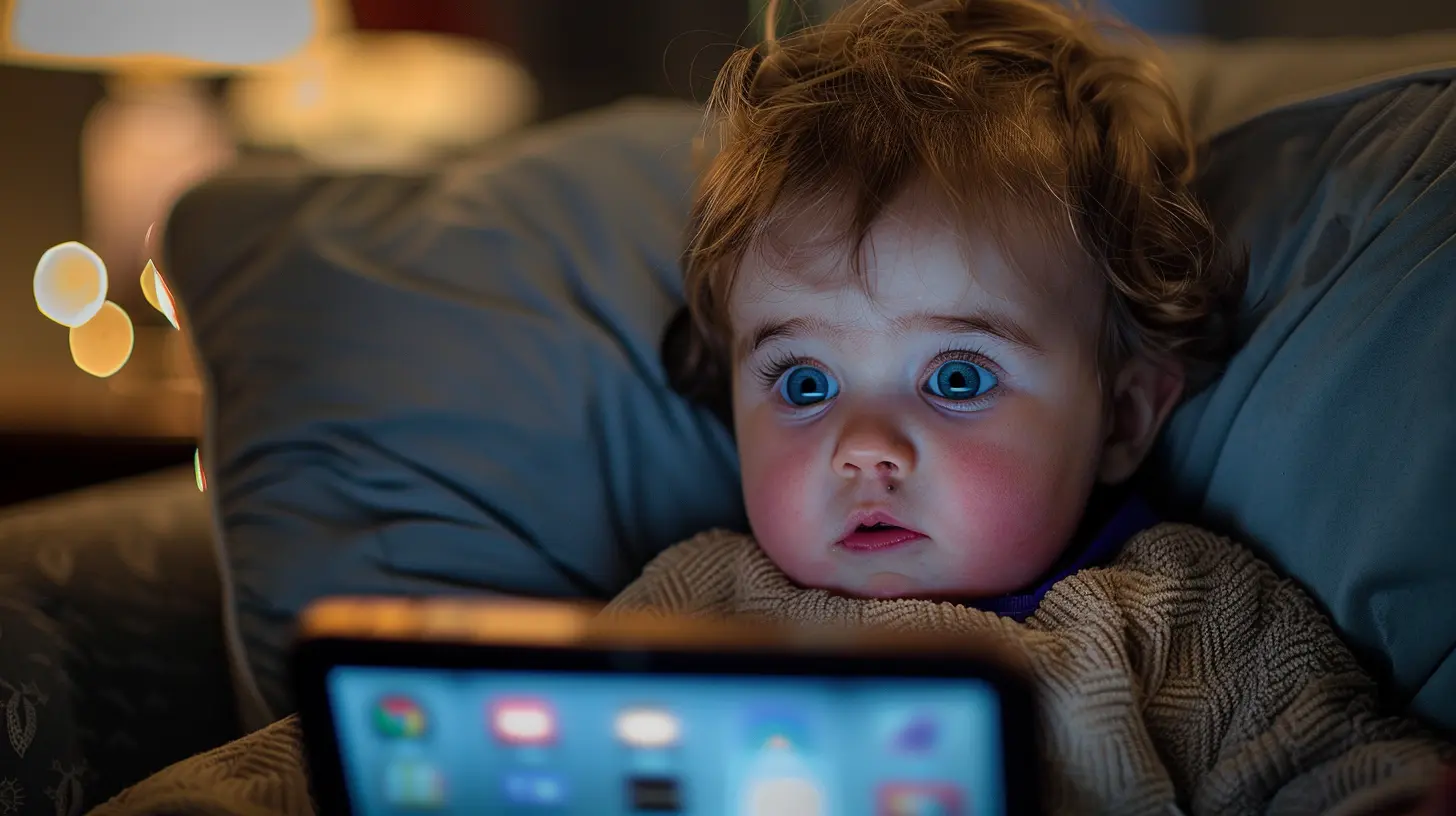25 April 2025
As parents, we're often bombarded with the dos and don'ts of raising a child, and one topic that seems to be on everyone's radar is screen time. I get it — screens are everywhere, and let’s be honest, they can give us a moment of peace when we're trying to juggle the chaos of parenthood. But at what cost? Specifically, how does screen time affect toddler milestones?
In recent years, many studies suggest that too much screen time can have a significant impact on a child's development. And while screens are often used to entertain, educate, or calm, excessive use during those critical early years can potentially delay important developmental milestones.
In this article, we're going to dive into exactly how screen time affects toddler milestones, how much screen time is too much, and tips for balancing the digital world with real-world learning.

The Importance of Toddler Milestones
Before we jump into the effects of screen time, it's crucial to understand why toddler milestones are important to begin with. Milestones are the significant markers of a child's development. Between the ages of one and three, toddlers are growing rapidly, both mentally and physically. These include milestones such as:- Cognitive development: Problem-solving, memory, and understanding cause and effect.
- Language and communication: Understanding spoken language, speaking, and following instructions.
- Fine and gross motor skills: Walking, running, stacking objects, and hand-eye coordination.
- Social and emotional development: Learning to express emotions, playing with others, and understanding social cues.
Now, imagine if something as simple as excessive screen exposure could impact these critical stages. Sounds alarming, right? But how exactly does this happen? Let’s break it down.

How Screen Time Affects Each Developmental Area
1. Cognitive Development
Toddlers are naturally curious creatures. They learn about the world by engaging with it – touching things, pulling, pressing, and even making mistakes. Unfortunately, screen time often limits this crucial hands-on learning.Why does screen time affect cognitive development?
Screens provide immediate gratification, and many apps and shows are designed to captivate attention with rapid visuals, sounds, and rewards. But while a tablet game might teach a toddler how to tap the screen, it doesn't necessarily teach problem-solving in the same way as, say, stacking blocks would.
Excessive screen time can cause toddlers to miss out on opportunities to engage in more creative and critical thinking activities. Rather than exploring the world around them, they’re passively consuming content. Slower-paced, hands-on activities allow toddlers to process and solve problems in real-time.
2. Language and Communication
Ever noticed how toddlers can thoroughly analyze your every word? During this stage, they’re busy expanding their vocabulary and building foundational language skills. Normally, toddlers develop their ability to understand and use language through conversation and interaction with parents, caregivers, and other children.But how does too much screen time come into play here?
Engagement is key when it comes to language development. If toddlers are spending hours in front of a screen—whether it be watching YouTube or a TV show—they may not be practicing necessary back-and-forth communication. While there might be sound coming from the screen, it’s one-sided, offering limited conversational exchanges. Toddlers need real-life interaction to practice using language, ask questions, and interpret non-verbal cues like facial expressions and tone of voice.
Some studies suggest that toddlers who spend too much time on screens may experience delayed speech or smaller vocabularies compared to their peers who have more face-to-face interaction.
3. Motor Skills
Motor skills develop through physical activity—crawling, climbing, throwing, and manipulating objects. These are the building blocks for tasks that will evolve into more complex actions in the future, like writing, drawing, or even playing sports.How does screen time inhibit motor development?
Screen time is a sedentary activity. The more time toddlers spend glued to a screen, the less time they're engaging in physical play. Swiping and tapping on a screen doesn't provide the same kind of multi-sensory engagement needed to develop fine motor skills.
For example, playing with blocks, toy cars, or puzzles allows toddlers to develop hand-eye coordination, dexterity, and spatial awareness—skills that can't be replicated by pressing buttons on a tablet.
4. Social and Emotional Development
Screen-based interactions are fundamentally different from real-world socializing. During toddlerhood, children are learning how to interact with others, express emotions, and read emotional cues from those around them.What happens when screen time replaces face-to-face interaction?
Screen time, particularly when it's solitary, can limit the opportunities toddlers have to learn essential social skills. Social development requires kids to play, share, take turns, and express emotions with those around them. When they're glued to a screen, they're not practicing those vital skills with their peers or caregivers.
Interestingly, excessive screen time can sometimes correlate with behavioral issues, such as increased irritability or difficulty managing emotions. Why? Because screens often stimulate the brain and can make it harder for children to engage in calmer, more emotionally regulated behaviors after prolonged use.

How Much Screen Time Is Too Much?
The American Academy of Pediatrics (AAP) recommends that children younger than 18 months should avoid screen time altogether, except for video chatting. For toddlers aged 2-5 years, they recommend no more than one hour per day of high-quality programming.But let's be realistic for a moment—most of us have used screens to get a break or keep our toddlers occupied for a bit longer than an hour. The key is moderation, and what’s more important is the content and context of screen time.
A 15-minute episode of a high-quality educational show followed by some interactive conversation about the show’s content? Great.
Unlimited hours of mindless cartoons while a toddler sits passively, disengaged from their surroundings? Not so much.

Tips for Balancing Screen Time with Toddler Milestones
We live in a digital world, and screens are here to stay. That doesn’t mean it’s all bad news when it comes to managing your toddler’s screen time. There are ways to achieve a healthy balance, ensuring your child gets the best of both worlds.1. Set Clear Boundaries and Limits
Setting up clear screen time rules can go a long way. Establish certain times during the day for screen use, and follow through with them consistently. You could even make screens a weekend-only treat or use them as a learning tool during specific moments, like an afternoon break.2. Choose High-Quality Content
Not all screen time is created equal. Opt for quality over quantity. Educational shows, apps, or interactive games that encourage creativity, problem-solving, or storytelling are much better options than videos that offer no real learning. Engage with age-appropriate apps or programs that push your toddler's learning forward.3. Be Present During Screen Time
Whenever possible, co-watch or co-play with your child. By interacting with the content alongside them, you can turn passive screen time into an active learning experience. Ask them questions, pause the show to expand their understanding, or encourage them to relate what they're seeing to something in real life.4. Encourage More Hands-On Play
Make sure your toddler has plenty of opportunities for off-screen play. Encourage activities that involve physical movement, problem-solving, and creativity. Building blocks, outdoor play, and simple puzzles are all fantastic alternatives to screen time and help foster motor, cognitive, and social development.5. Model Healthy Screen Habits
Toddlers learn by observing what we do. If they see you constantly checking your phone or watching TV, they’ll want to do the same. Try to model healthy screen time habits by balancing your own screen use with other activities. Show them that screens are just one part of a well-rounded life.The Verdict: Screen Time Isn’t Always the Villain
With all this in mind, it's important to note that screen time isn’t inherently bad. In moderation, and when used thoughtfully, screens can be a tool for learning, entertainment, and even bonding.The real issue arises when screen time disrupts the natural flow of toddlerhood—exploration, interaction, play, and physical activity. By being mindful of the content your child is consuming and setting reasonable boundaries, you can protect their development while still navigating the tech-heavy world we live in.
Remember, it’s all about balance. When your child spends more time interacting with the world around them—through play, social interaction, and hands-on experiences—they're more likely to hit their milestones on time and grow into well-rounded individuals.





Dior Martin
I'm intrigued by how screen time shapes toddler development! What specific milestones are most affected, and how can we strike the right balance for our kids?
April 26, 2025 at 4:48 PM